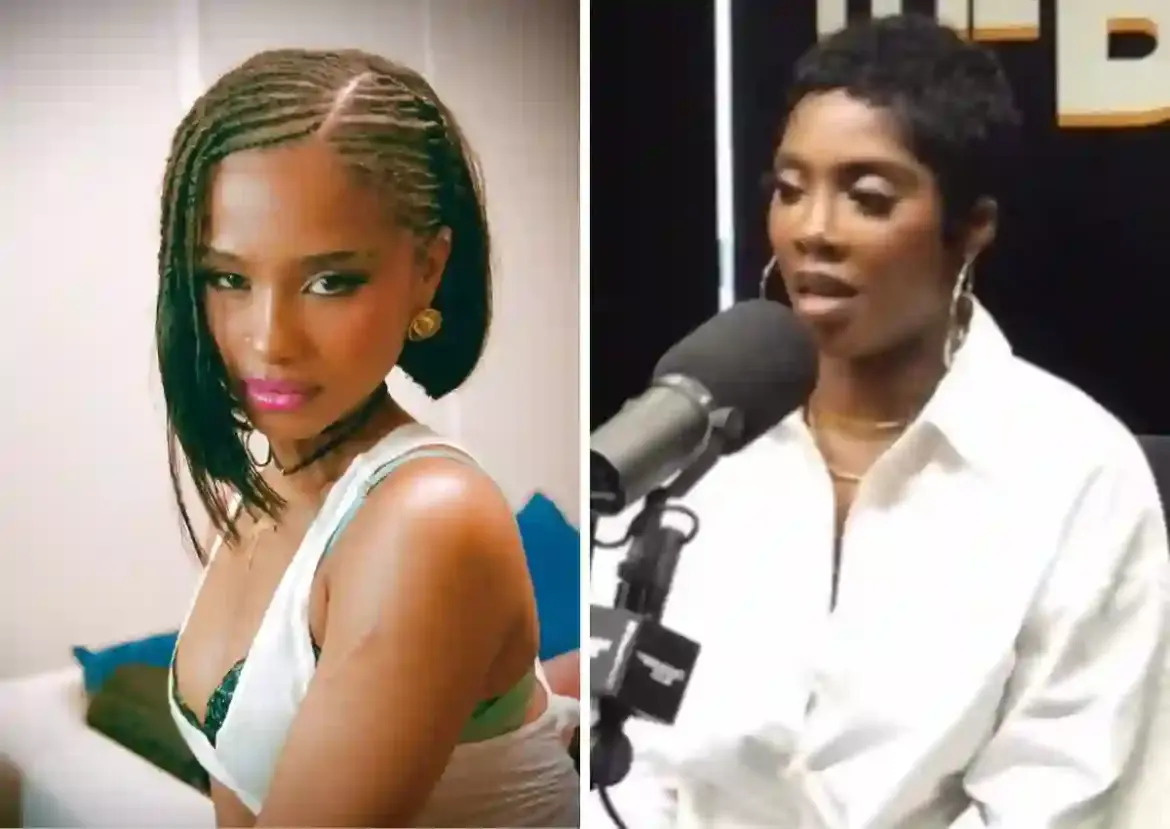Over the weekend, the internet lit up after South African singer Tyla appeared to respond to remarks made by Nigerian star Tiwa Savage about her racial identity.
The drama unfolded at the Global Citizens concert in Central Park, New York, where Tyla was performing for an enthusiastic crowd.
“Sorry, I’m Not Sorry” Moment Goes Viral
While on stage, Tyla cheekily referenced Tiwa Savage’s song Somebody’s Son with the line, “Sorry. I’m not sorry.”
The crowd erupted in applause and cheers, and the clip quickly went viral on social media.
Fans interpreted the moment as a playful, yet pointed, jab at Tiwa Savage’s recent comments on race.
Tiwa Savage’s Comments on Tyla’s Racial Identity
The controversy started earlier when Tiwa Savage appeared on the US radio show The Breakfast Club.
During the interview, she addressed Tyla’s self-identification as “coloured” — a term with historical and racial implications in South Africa that carries sensitivity in the United States.
Tiwa explained her perspective, suggesting that Tyla’s intention was not malicious.
“I think I felt for her a little bit because she is young, and I do not think she means to come across like that,” Tiwa said.
Tiwa’s “Apology” to Americans
Going further, Tiwa took it upon herself to apologize to those who might have been offended by Tyla’s use of the term.
“Where I am from, when something like this happens, the elderly would come and speak ‘on behalf of’.
We apologise. So if that was not communicated, I would like to say on behalf of her, we apologise.
We did not mean it, forgive us. I do not think it came from a bad place,” she explained.
Fans React to the Public Exchange
The brief but viral on-stage moment at Central Park sparked heated debates online.
While some praised Tyla for asserting herself and owning her identity, others defended Tiwa’s intentions, framing her apology as a cultural gesture of respect.
The playful yet tense exchange highlights how artists from different countries navigate sensitive cultural and racial topics in the global spotlight — especially when their words reach audiences far beyond their home countries.
